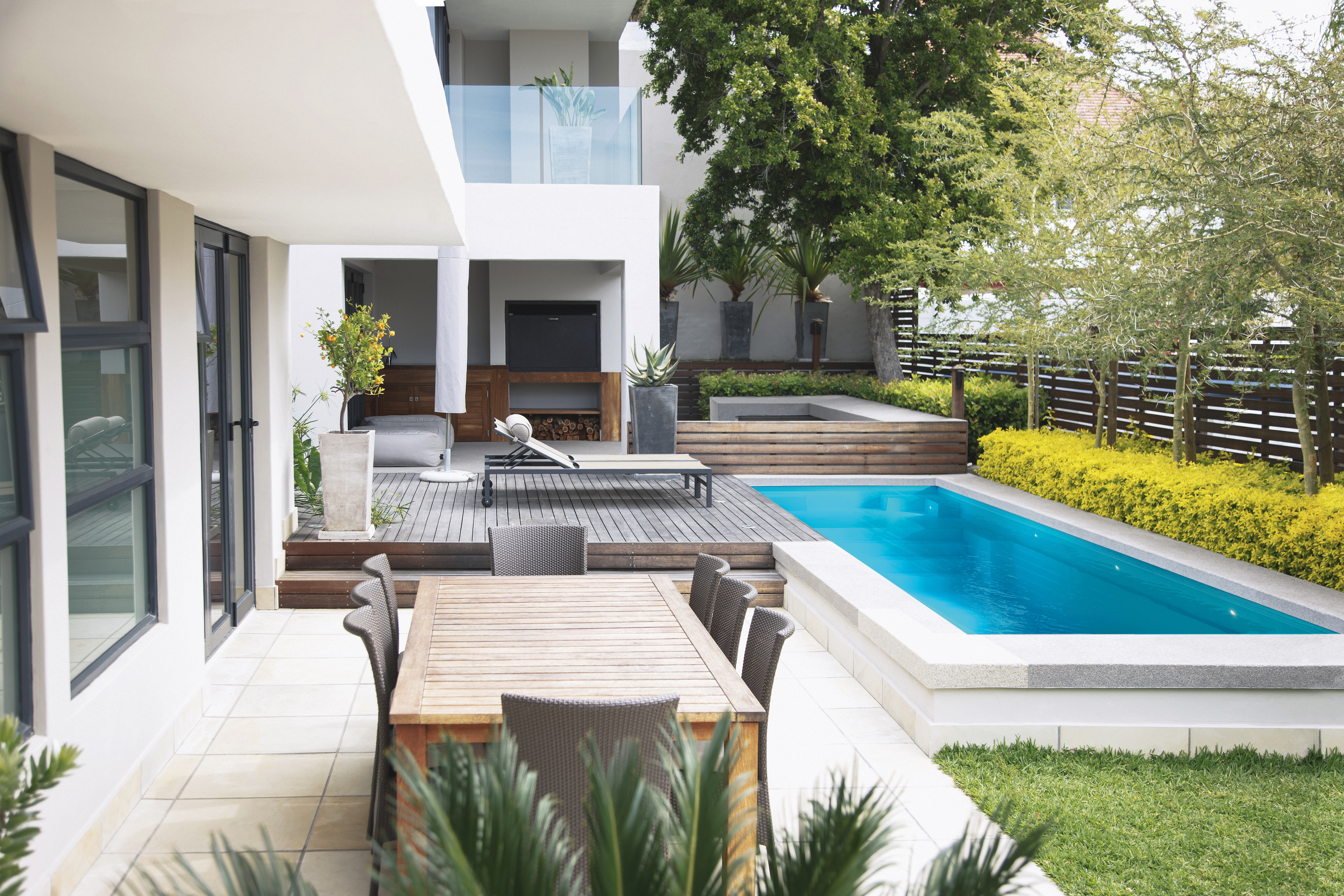
Fibreglass Pools vs Concrete Pools: Which to Choose?

In This Article:
Fibreglass or Concrete Pools?
We understand that choosing a pool for your house is not a decision to be taken lightly as it will ultimately become a significant feature in terms of space and aesthetics. Once the pool is installed, changing your mind can be quite inconvenient.
In this article, we will explore the differences between two popular types of pools—Fibreglass and Concrete—and highlight their distinctions so that you can make an informed decision on what pool type best suits you, your family, and your household.
After conducting research and deciding how you would like your pool to complement your home, the time comes to make the critical decisions. It can be challenging because both Fibreglass and Concrete pools offer appealing qualities that make them both viable options. Ultimately, the choice will depend on which type best meets your specific needs.
Affordability
Fibreglass pools, as they come ready-made from the factory, have considerably faster installation times compared to concrete pools. Which means you will save money on tradespeople. Installing a fibreglass pool can cost approximately 20% less than installing a concrete pool. Moreover, concrete pools require additional maintenance, chemicals, and energy consumption, making them more expensive to maintain. In contrast, fibreglass acts as an insulator, retaining heat for longer periods if you choose to install a heating system.
Design
Concrete pools offer the advantage of design flexibility as they can be fully customised in terms of shape and finishes. However, these days, there is a wide range of shapes and pool colours available for fibreglass pools, providing options that can cater to your specific needs and style.
Durability
It may sound surprising, but fibreglass pools are actually stronger than concrete pools. Fibreglass is highly durable, and thanks to modern technology, Nexus Pools offer a Lifetime Structural Warranty on our fibreglass pool shells. Fibreglass pools rarely require resurfacing, whereas concrete pools need to be resurfaced every 10 to 15 years.
In conclusion, both styles offer their own advantages. However, the final decision on which type of pool to have in your backyard ultimately rests with you. It is important to carefully consider your needs, budget, and desired features before making a choice. By weighing the affordability, design options, and durability of both types, you can make an informed decision that will provide you with a pool that meets your requirements for years to come.
When you are ready to take the plunge, Nexus Pools stands at the ready. As always, we invite you to live in the moment and stay for the memory. Contact us today to get started on the backyard of your dreams.